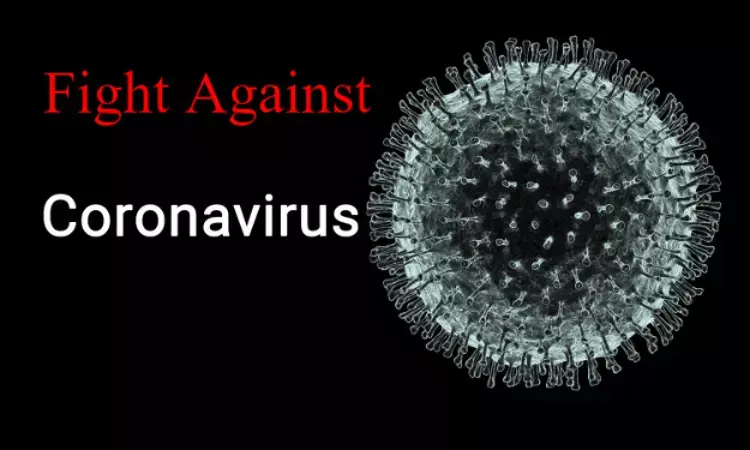- Home
- Medical news & Guidelines
- Anesthesiology
- Cardiology and CTVS
- Critical Care
- Dentistry
- Dermatology
- Diabetes and Endocrinology
- ENT
- Gastroenterology
- Medicine
- Nephrology
- Neurology
- Obstretics-Gynaecology
- Oncology
- Ophthalmology
- Orthopaedics
- Pediatrics-Neonatology
- Psychiatry
- Pulmonology
- Radiology
- Surgery
- Urology
- Laboratory Medicine
- Diet
- Nursing
- Paramedical
- Physiotherapy
- Health news
- Fact Check
- Bone Health Fact Check
- Brain Health Fact Check
- Cancer Related Fact Check
- Child Care Fact Check
- Dental and oral health fact check
- Diabetes and metabolic health fact check
- Diet and Nutrition Fact Check
- Eye and ENT Care Fact Check
- Fitness fact check
- Gut health fact check
- Heart health fact check
- Kidney health fact check
- Medical education fact check
- Men's health fact check
- Respiratory fact check
- Skin and hair care fact check
- Vaccine and Immunization fact check
- Women's health fact check
- AYUSH
- State News
- Andaman and Nicobar Islands
- Andhra Pradesh
- Arunachal Pradesh
- Assam
- Bihar
- Chandigarh
- Chattisgarh
- Dadra and Nagar Haveli
- Daman and Diu
- Delhi
- Goa
- Gujarat
- Haryana
- Himachal Pradesh
- Jammu & Kashmir
- Jharkhand
- Karnataka
- Kerala
- Ladakh
- Lakshadweep
- Madhya Pradesh
- Maharashtra
- Manipur
- Meghalaya
- Mizoram
- Nagaland
- Odisha
- Puducherry
- Punjab
- Rajasthan
- Sikkim
- Tamil Nadu
- Telangana
- Tripura
- Uttar Pradesh
- Uttrakhand
- West Bengal
- Medical Education
- Industry
Convalescent plasma administration may improve outcomes in Covid 19 patients

In a small study preliminary findings raise the possibility that convalescent plasma transfusion may be helpful in the treatment of critically ill patients with COVID-19 and ARDS.This approach however requires evaluation in randomized clinical trials.
The rapidly expanding coronavirus disease 2019 (COVID-19) (SARS–CoV-2) acute respiratory pandemic has assaulted all aspects of daily life.
Coronavirus disease 2019 (COVID-19) is a pandemic with no specific therapeutic agents and substantial mortality. It is therefore critical to find new treatments including use of convalescent plasma.
The use of convalescent plasma is not new; it was used for severe acute respiratory syndrome (SARS), pandemic 2009 influenza A (H1N1), avian influenza A (H5N1), several hemorrhagic fevers such as Ebola, and other viral infections.
Researchers conducted a study to find out whether administration of convalescent plasma transfusion be beneficial in the treatment of critically ill patients with coronavirus disease 2019 (COVID-19)?
The researchers investigated case series of 5 critically ill patients with laboratory-confirmed COVID-19 and acute respiratory distress syndrome (ARDS) who met the following criteria: severe pneumonia with rapid progression and continuously high viral load despite antiviral treatment; Pao2/Fio2 <300; and mechanical ventilation. All 5 were treated with convalescent plasma transfusion. The study was conducted at the infectious disease department, Shenzhen Third People's Hospital in Shenzhen, China, from January 20, 2020, to March 25, 2020; final date of follow-up was March 25, 2020. Clinical outcomes were compared before and after convalescent plasma transfusion.
Patients received transfusion with convalescent plasma with a SARS-CoV-2–specific antibody (IgG) binding titer greater than 1:1000 (end point dilution titer, by enzyme-linked immunosorbent assay [ELISA]) and a neutralization titer greater than 40 (end point dilution titer) that had been obtained from 5 patients who recovered from COVID-19. Convalescent plasma was administered between 10 and 22 days after admission.
The main outcomes were changes of body temperature, Sequential Organ Failure Assessment (SOFA) score (range 0-24, with higher scores indicating more severe illness), Pao2/Fio2, viral load, serum antibody titer, routine blood biochemical index, ARDS, and ventilatory and extracorporeal membrane oxygenation (ECMO) supports before and after convalescent plasma transfusion.
It was found that all 5 patients (age range, 36-65 years; 2 women) were receiving mechanical ventilation at the time of treatment and all had received antiviral agents and methylprednisolone. Following plasma transfusion, body temperature normalized within 3 days in 4 of 5 patients, the SOFA score decreased, and Pao2/Fio2 increased within 12 days (range, 172-276 before and 284-366 after). Viral loads also decreased and became negative within 12 days after the transfusion, and SARS-CoV-2–specific ELISA and neutralizing antibody titers increased following the transfusion (range, 40-60 before and 80-320 on day 7). ARDS resolved in 4 patients at 12 days after transfusion, and 3 patients were weaned from mechanical ventilation within 2 weeks of treatment. Of the 5 patients, 3 have been discharged from the hospital (length of stay: 53, 51, and 55 days), and 2 are in stable condition at 37 days after transfusion.
The researchers concluded that in this preliminary uncontrolled case series of 5 critically ill patients with COVID-19 and ARDS, administration of convalescent plasma containing neutralizing antibody was followed by improvement in their clinical status. The limited sample size and study design preclude a definitive statement about the potential effectiveness of this treatment, and these observations require evaluation in clinical trials.
For further reference log on to:
Dr Kamal Kant Kohli-MBBS, DTCD- a chest specialist with more than 30 years of practice and a flair for writing clinical articles, Dr Kamal Kant Kohli joined Medical Dialogues as a Chief Editor of Medical News. Besides writing articles, as an editor, he proofreads and verifies all the medical content published on Medical Dialogues including those coming from journals, studies,medical conferences,guidelines etc. Email: drkohli@medicaldialogues.in. Contact no. 011-43720751


